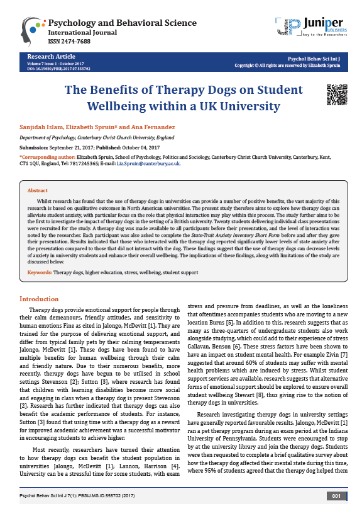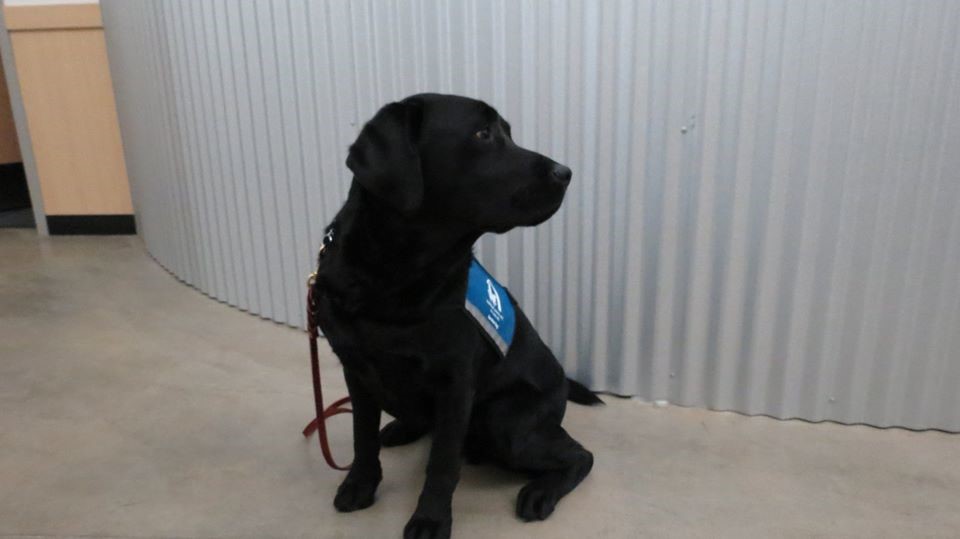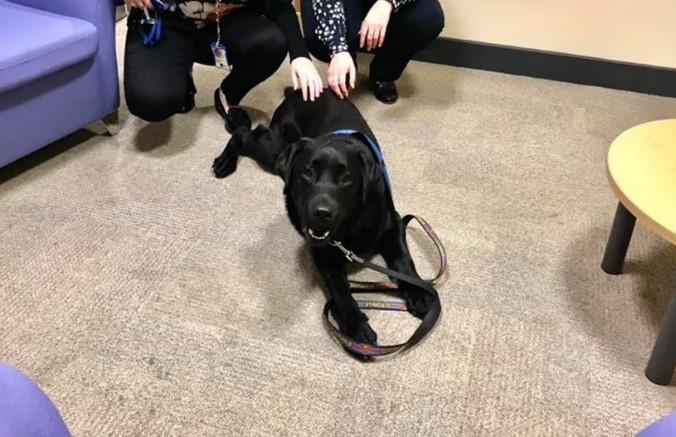
Welcome to the JSDI Lab Website

Site Menu
Meet Oliver – Europe’s First Justice Facility Dog
The JSDI Lab Staff
What is the difference between facility dogs and therapy dogs?
Grants and Funding
Current Research
Student Projects
Going forward…
Lab Publications and Research Outputs
Public Engagement
The Justice Support Dogs International Lab (JSDI) was established to promote the use of professionally trained Justice Facility Dogs (also known as ‘facility dogs’) in the UK Criminal Justice System. Since 2004, these facility dogs have been helping vulnerable people participate in stressful legal proceedings across North America. Today there are around 300 of these dogs working across 40 states and provinces in America and Canada.
Whilst anecdotal evidence has found these facility dogs to provide a number of benefits to vulnerable people in the justice system (e.g., comfort and calmness, reducing stress and anxiety, helping with speech and memory function), the empirical evidence required to establish these benefits is still required.
The mission of JSDI is therefore to build an evidence base for the value of these dogs. We envision that by doing so, the use of justice facility dogs will begin to grow, not just in the UK, but worldwide.
Meet Oliver – Europe’s First Justice Facility Dog
JSDI are pleased to introduce Europe’s first Justice Facility Dog and the only one of his kind to be placed at a university for research purposes. Oliver will be helping the JSDI researchers fill in gaps in knowledge relating to the use of facility dogs in the legal setting.
Oliver was donated to us by Duo, a not-for-profit organisation that trains and provides highly skilled assistance dogs across America. Oliver’s job will be very exciting and varied. He will support vulnerable victims and witnesses during the criminal justice process on a regular basis and will be helping us gain evidence to support best practice and policies as well as acting as a demonstrator dog so that agencies can see how valuable having their own facility dog can be.
The JSDI Lab Staff

Oliver is the first professionally trained Justice Facility Dog in Europe. In January 2018, after 18 months of training, Oliver graduated as a Justice Facility Dog from Duo (formerly Support Dogs Inc.), an ADI accredited assistance dog programme. He is trained to assist vulnerable witnesses and victims during stressful legal proceedings. When he is not working in the criminal justice system, he resides in his office with his primary handler (Dr Elizabeth Spruin), located in the psychology department of Canterbury Christ Church University.

Pixie: Therapy Dog
Pixie is a Therapy Dog who works with JSDI and the Education and Psychology Teams at Canterbury Christ Church University. She is a familiar face on campus and in the University’s library where she works to help students during times of stress.

Poppy is a therapy dog who volunteers with the court and outreach team at Kent Witness Services. Since 2016, she has provided support to court users whilst they wait to provide evidence in court. Poppy’s work has been vital in helping researchers from CCCU’s Psychology and Policing departments begin to evaluate the impact specially trained dogs can have in the UK criminal justice system. Poppy also volunteers with the psychology department at CCCU, working to support students during stressful times.
Dr. Elizabeth Spruin, Founder and Director
Liz is a Senior Lecturer in Psychology and an Investigative Psychologist within the School of Psychology and Life Sciences. Liz has had extensive experience in working with forensic and vulnerable populations (e.g., prison populations, complex need individuals, victims of domestic abuse) and with external organisations and partners, such as prisons, secure mental health hospitals, and women’s refuges. Since 2016, she has been a pioneer in evidencing the use of specially trained dogs to support vulnerable people in the UK criminal justice system. In 2017, Liz founded the Justice Support Dogs International (JSDI) Lab, with the vision of promoting the use of specially trained dogs to help vulnerable people during legal proceedings and to build an evidence base for these practices.
For more information about Liz, see her staff profile, here.
Dr. Katarina Mozova, Deputy Director
Katarina is a Lecturer in Policing within the School of Law, Policing and Social Sciences. She has vast experience working with vulnerable populations, including offenders in prison and community, complex need individuals in the community, domestic abuse victims, youth offenders, and school pupils. Since 2016, Katarina has been working alongside Liz to help develop the use of specially trained dogs for vulnerable people in the UK criminal justice system. As Deputy Director, she is also currently working to develop best practice guidelines for these practices.
For more information about Katarina, see her staff profile, here.
Ms Susanna Mitchell, Executive Director
Susanna has been a senior crown prosecutor for the CPS for 10 years, with the last 4 of those years working on the rape and serious sexual offences (RASSO) unit, dealing with cases involving the most vulnerable of victims and witnesses. In 2015, Susanna joined the Policing Department. She has experience of all types of criminal cases but specialises in those involving rape and sexual offences. Improving the criminal justice system for vulnerable victims is one of her key areas of interest and she is currently completing her PhD in the experience of the criminal justice system for child victims of sexual abuse.
For more information about Susanna, see her PhD profile, here.
Dr. Tammy Dempster, Researcher
Tammy has a PhD in cognitive neuropsychology, although her background and experience cover a wide range of fields in psychology. Tammy works for the Psychology Team as their full-time Research Assistant. She joined the JSDI Lab in 2017 and her role is to assist in the day to day running of the various research projects the Lab is working on.
For more information about Tammy, see her staff profile, here.
Dr Tracey Wornast, Therapy Dog Handler

Tracey has previously worked as a midwife and health visitor and whilst she still works within the NHS she has been with the university for over 14 years. Tracey works in the Faculty of Arts, Humanities and Education as the Director for the Undergraduate Suite and is the Programme Director for the BA Counselling Coaching and Mentoring and the BSc Human Development, Mind, Body and Spirit programmes. Her area of expertise is wellbeing, public health, animal and human interaction and intervention and she is an experienced animal therapy handler. Not only has she been working alongside the Student Union and University Clergy to establish a Wellbeing Dog Service, she and her therapy dog Pixie have been working with Oliver and the JSDI to research the effect of therapy dogs on alleviating student stress and anxiety.
For more information about Tracey, see her staff profile, here.

Mark Titus, Technical Specialist
Mark has a background in Human Factors Psychology and Information Technology and has extensive experience in a wide variety of software and hardware solutions. As well as working as one of the University Psychology Team technicians he also works for JSDI Lab, updating their webpages and helping them with their day to day IT needs.
What is the difference between facility dogs and therapy dogs?
Therapy Dogs
Therapy dogs are not trained to assist individuals but rather, they are personal pets that complete basic obedience training with the owner (Connor and Miller, 2000; Schoenfeld-Tacher, et al., 2017). They undergo a temperament assessment that assesses that the dog is sociable and friendly, calm and gentle when being stroked or handled, and is not overtly fearful of new and unexpected stimuli (Jalondo et al., 2004; Marcus, 2013).

Facility Dogs
Facility dogs work alongside a professional in a service capacity to assist multiple people with different needs (Himot et al., 2017). In this capacity, both the facility dog and working professional are specially trained.
Facility dogs have been intentionally raised and socialised from early puppyhood to fulfil a particular role. They are professional trained for two years by an internationally recognised Assistance Dog International (ADI) program which sets strict standards (Cavalli et al., 2017; Tedeschi et al., 2010).
Grants and Funding
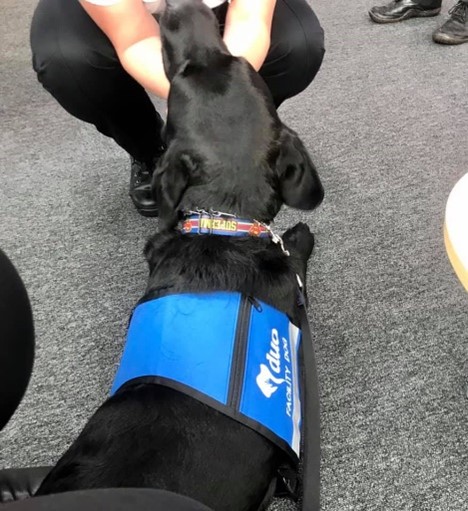
Source: Nottinghamshire Police (March 2020)
Purpose: To fund the placement or our facility dog in their ABE interviews in order to explore the benefits which facility dogs can provide witnesses undergoing police interviews.
Amount awarded: £600

Source: Derbyshire Police (December 2019)
Purpose: To fund the placement or our facility dog in their ABE interviews in order to explore the benefits which facility dogs can provide witnesses undergoing police interviews.
Amount awarded: £600
Grant: Assistance Dog Funding for Justice Facility Dog (2017/18)

Source: Support Dogs Inc. (Now Duo: https://duodogs.org/)
Purpose: Cost of a professional trained and ADI certified Justice Facility Dog
Amount awarded: £60, 000
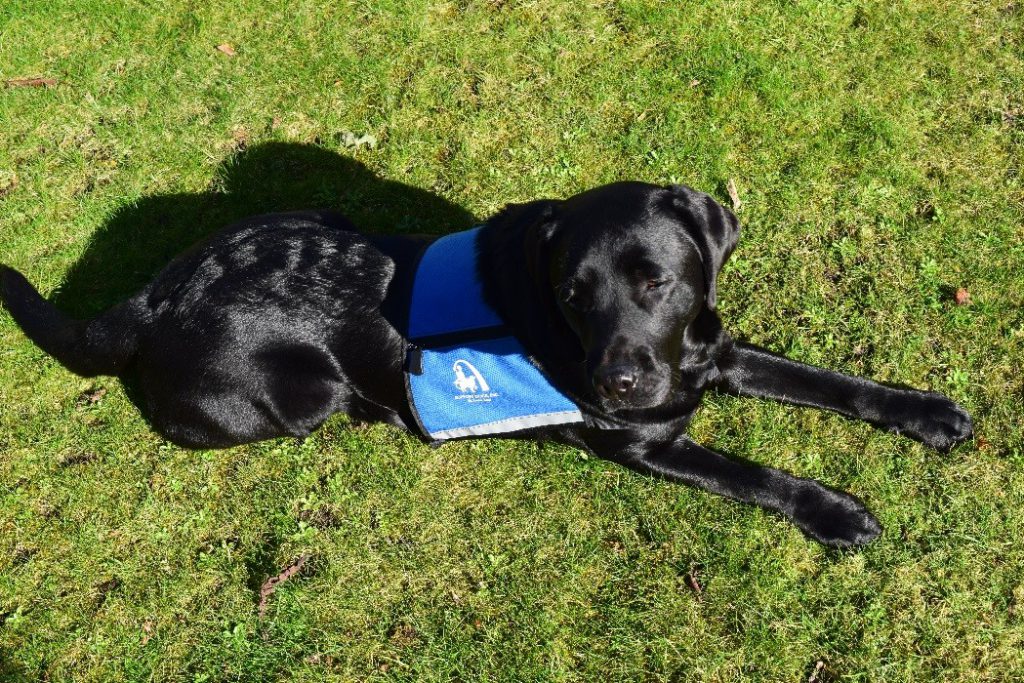
Grant: Seed Funding (2017/18)
Source: Canterbury Christ Church University
Purpose: Court Facility Dog Placement
Amount awarded: £3000

Grant: Research and Knowledge Exchange Internship (2015/16)
Source: Canterbury Christ Church University
Purpose: Using therapy dogs as emotional support for students
Amount awarded: £2626

Grant: Environment Fund (2017/18)
Source: Canterbury Christ Church University
Purpose: Justice Support Dogs International Conference
Amount awarded: £3500
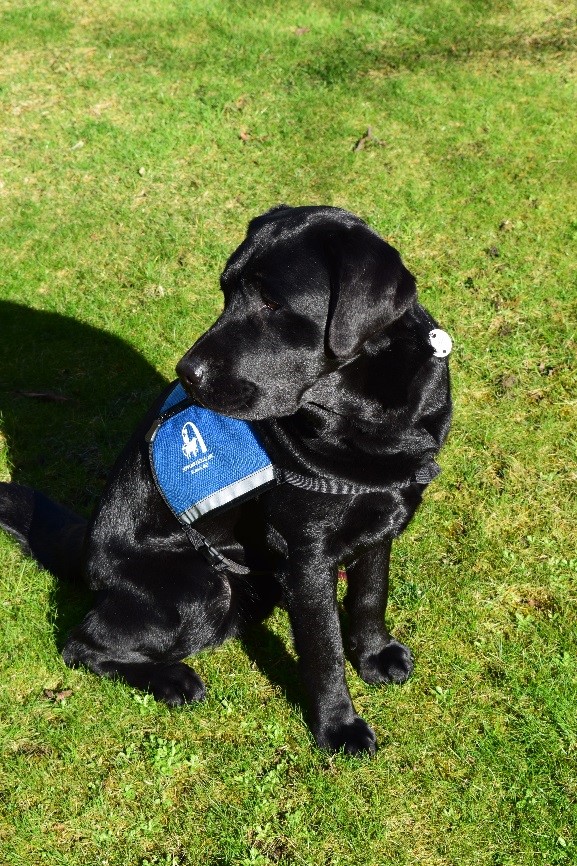
Grant: QR Seed Research Fund (2016/17)
Source: Canterbury Christ Church University
Purpose: The perceptions of court users and legal professionals for the use of specially trained dogs in the criminal justice system
Amount awarded: £7000
Current Research

Working Title: The impact of jury direction on the utility of facility dogs in crown court proceedings
Stage: Write-up
Brief summary: Whilst research has shown that the use of facility dogs in supporting victims and witness during their legal journey can be beneficial, and that their use does not prejudice a jury, it is key that best practice is established. The current research explored different ways in providing direction to members of a mock jury relating to the presence of a facility dog during a pre-recorded witness testimony.
Working Title: The use of facility dogs in supporting vulnerable people during ABE interviews
Stage: Data collection
Brief summary: The project investigates the use of justice facility dogs in supporting vulnerable people during police interviews. This project will be the first of its kind within the UK and will be utilising the first and only justice facility dog in Europe. The project aims to firstly, provide support for vulnerable people to achieve best evidence, secondly, build an evidence base for the use of justice facility dogs in supporting these individuals, and thirdly, use the findings to help improve the policies and practices currently in place for vulnerable people.
Working title: Views of, and experiences with, UK courthouses
Stage: Data collection
Brief summary: The presence of a dog can help alleviate mental distress (e.g., Aydin et al., 2012). This is why some countries use specially trained facility dogs to accompany witnesses when they’re testifying in court (see, for example, Sandoval, 2012). This current study intends to investigate how UK court users currently experience the courthouse and what effect they feel that having access to a specially trained facility dog would have on that experience. This is part of a larger project aimed at improving the experience of UK court users.
Keep track of all our latest work via:
Facebook: www.facebook.com/JusticeSupportDogsInternational/
Twitter: @JusticeDogsLab
Instagram: https://www.instagram.com/justicesupportdogs/
Student Projects

2019-2020
Year 3 – Student projects
“Can the use of facility dogs in the criminal justice system have an impact on juror perception?” – Chelsea Williams
2018-2019
Year 3 – Student projects
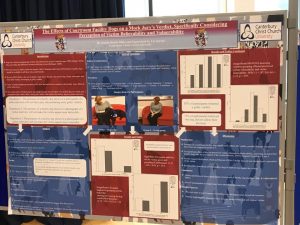
“The effects of courtroom facility dogs on a mock jury’s verdict, specifically considering perception of victim believability and vulnerability?” – Amelia Heath-Mills

“Does the use of a courthouse dog alter the perception or decision of the juror in a courtroom setting?” – Ayomiposi Osisami

“Dogs: A student’s best friend.” – Jennifer Starling
2017-2018
Year 3 – Student projects
Therapy dogs vs Mindfulness: Impact on anxiety and stress
Aim: To compare the effectiveness of a therapy dog compared to the effectiveness of mindfulness on undergraduate students’ anxiety.
Results: Therapy dogs provide the same effectiveness on anxiety as mindfulness
Outcome: Currently in press to be published in the Journal of Further and Higher Education
2017-2018
Year 3 – Student projects
Therapy dogs vs Mindfulness: Impact on anxiety and stress
Aim: To compare the effectiveness of a therapy dog compared to the effectiveness of mindfulness on undergraduate students’ anxiety.
Results: Therapy dogs provide the same effectiveness on anxiety as mindfulness
Outcome: Currently in press to be published in the Journal of Further and Higher Education
2017-2018
PhD projects
Supporting mental health and wellbeing for postgraduate research students
Aim: This study aims to investigate the benefits of therapy dogs on levels of depression, stress, anxiety and cognitive functioning in students.
Year 3 – Student projects
Therapy dogs vs Mindfulness: Impact on anxiety and stress
Aim: To compare the effectiveness of a therapy dog compared to the effectiveness of mindfulness on undergraduate students’ anxiety.
Stage: Student is currently finalising their design and aims to start collecting the data in December.
2016-2017
Year 3 – Student projects
The benefits of therapy dogs on student well-being within a UK University
Aim: To see whether therapy dogs can alleviate students’ anxiety in a University setting. Specifically, whether making a therapy dog available to students whilst they were delivering individual class presentations decreased their feelings of anxiety.
Results: Students who interacted with the therapy dog showed significantly lower levels of trait anxiety than those who did not.
Outcome: Publication
MSc – student project
Aim: To investigate whether or not the addition of a therapy dog in student support sessions decreased students’ anxiety and increased their feelings of well-being.
Results: Significant increase in students’ feelings of well-being and significant decrease in student’s state anxiety levels from the start of the therapy dog session compared to the end of the therapy dog session.
Outcome: This data from this project is being used as a pilot for this year’s Master’s student project.

Going forward…
We’ve just set up a new lab to encompass all the work we do with both our justice facility dog and therapy dog. This includes both our local and international work alongside the criminal justice system as well as the work we are doing with the university targeted at improving undergraduate and postgraduate students’ mental health and well-being.
Once our lab is up and running in full we will be developing it in to the CCCU Psychology team’s first Research Centre.
To keep track of all our latest work go to our new lab webpage:
blogs.canterbury.ac.uk/psychology/justice-dogs/
or our Facebook page:
www.facebook.com/JusticeSupportDogsInternational/
Twitter: @JusticeDogsLab
Instagram: @JusticeSupportDogs
In January 2018, we welcomed a new member to the team! Duo (duodogs.org) have donated an ADI certified Justice Facility Dog to help us with our work in the criminal justice system.
This is the first time any ADI organisation training these has provided this type of assistance dogs to a facility outside North America. We are extremely excited about this partnership and very thankful to Support Dogs Inc for providing us with the first Justice Facility Dog in Europe!
Lab Publications and Research Outputs

Journal Publications
Spruin, E., Dempster, T., Islam, S., & Raybould, I. (2020). The effects of a therapy dog vs mindfulness vs a student advisor on student anxiety and well-being. Journal of Further and Higher Education, https://doi.org/10.1080/0309877X.2020.1804535.
Spruin, E., Dempster, T., & Mozova, K. (2020). Facility dogs as a tool for building rapport and credibility with child witnesses. International Journal of Law, Crime, and Justice. https://doi.org/10.1016/j.ijlcj.2020.100407.
Spruin, E., Mozova, K., Dempster, T., & Freeman, R. (2020). The use of facility dogs to bridge the justice gap for survivors of sexual offending. Social Sciences, 9(6).
Spruin, E., Mozova, K., Dempster, T., & Mitchell, S. (2019). Exploring the impact of specially trained dogs on the court experiences of sexual offence survivors in England and Wales: An exploratory case study. European Journal on Criminal Policy and Research. https://doi.org/10.1007/s10610-019-09419-1.
Spruin, E., Mozova, K., Franz, A., Mitchell, S., Ferdandez, A., Dempster, T., & Holt, N. (2019). The use of therapy dogs to support court users in the waiting room. International Criminal Justice Review, 29(3), 284-303.
Spruin, E., & Mozova, K. (2018). Dogs in the criminal justice system: Consideration of facility and therapy dogs. Pet Behaviour Science, 5, 1-12.
Spruin, E., & Mozova, K. (2018). Specially trained dogs in the UK criminal justice system. Seen and Heard, 28, 63-67.
Islam, S., Spruin, E., & Fernandez, A. (2017). The benefits of therapy dogs on student wellbeing within a UK university. Psychology and Behavioural Science International Journal, 7(1), 555702. https://doi.org/10.19080/PBSIJ.2017.07.555702.
Spruin, E., & Mozava, K. (September, 2017) Using specially trained dogs in the Criminal Justice System. BPS Forensic Update, issue 125, 39-42.
Other Publications
HM Courts & Tribunals Service. (2017). Poppy the therapy dog meets judges and staff in Maidstone. HM Courts & Tribunals Service, eNews, 20.
Philpott, H. (Autumn, 2017). Poppy: Our therapy dog. Kent Victim and Witness Newsletter.
Philpott, H. (2017) Poppy meets Crown Court judges, staff & young victims. Witness Liaison Officers Quarterly Newsletter, issue 10, p. 2.
Philpott, H. (2017) Therapy Dog at Kent Magistrates Court. Witness Liaison Officers Quarterly Newsletter, issue 7, p. 2.
Rhodes, E. (2016). Paws for court. The Psychologist, 29, 896-901. ISSN 0952-8229.
Spruin, E., Holt, N., Ferdandez, A., & Franz, A. (2016). Dogs in the Courtroom. Crime and Criminal Behaviour. New York: Nova Science Publishers.
Selected Conference Presentations
International Courthouse Dog Conference, Seattle. (September 2019). Scientific research on facility dogs working in the legal system. Co-presented with Professor Jim Ha from the University of Washington.
Salomons Institute for Applied Psychology – Public Lecture, Tunbridge Wells (June 2019). Dog’s supporting victims in the criminal justice system.
Royal Canadian Mounted Police, Grand Prairie, Canada (February 2019). The use of facility dogs in the criminal justice system.
Managing vulnerable people in the criminal justice system, Kent Police College (December, 2018). Facility dogs in ABE interviews.
Intermediaries for Justice: Vulnerability & Justice, London (June 2018). Supporting vulnerable people in the criminal justice system.
BPS Division of Forensic Psychology Annual Conference, Liverpool (June 2019). The use of therapy dogs to support court users.
BPS Division of Forensic Psychology Annual Conference, Bristol (June 2017). The use of specially trained dogs in the criminal justice system.
Blog Posts
Spruin, E. (December 14th, 2017). Paws for though: How man’s best friend can support domestic violence victims. https://blogs.canterbury.ac.uk/expertcomment/paws-for-thought-how-mans-best-friend-can-support-domestic-violence-victims/
Spruin, E. (December 15th, 2015). Look what the courts dragged in… https://blogs.canterbury.ac.uk/expertcomment/look-what-the-courts-dragged-in/
Spruin, E. (October 23rd, 2015). Dogs in the courtroom. https://blogs.canterbury.ac.uk/psychology/dogs-in-the-courtroom/
Public Engagement
TV and Radio
BBC Radio Nottingham. (March 2020). Facility dog research with Derbyshire Police
BBC Radio Derbyshire. (December 2019). Facility dog research with Derbyshire Police
BBC Crimewatch Roadshow. (March 2019). Research on Europe’s first justice facility dog.
BBC Breakfast. (March 2019). Research on justice facility dogs.
ITV News. (February 2019). Meet Oliver: The Labrador helping victims of crime.
BBC Radio Live. (February 2019). Phil Williams show – Meet Oliver.
BBC Radio Kent. (February 2019). Discussion on the use of therapy dogs.
KMTV. (January 2019). Dog to help victims of crime.
Radio 4. (January 2019). Oliver the justice facility dog.
Sky News. (December 2018). UK’s first justice support dog to help vulnerable victims of crime.
ITV Meridian News (April 2017). The dog that appears in court.
BBC Essex Radio (December 2016). Pets in the courtroom.
Magazine and Newspaper
Kentish Gazette. (January 2019). Victims given creature comfort.
The Telegraph. (January 2019). Victims of crime to be given dogs to stroke to help keep them calm.
Metro. (January 2019). Police enlist dog to help victims of crime.
The Psychologist. (December 2016). Paws for Court.
 psychology
psychology





